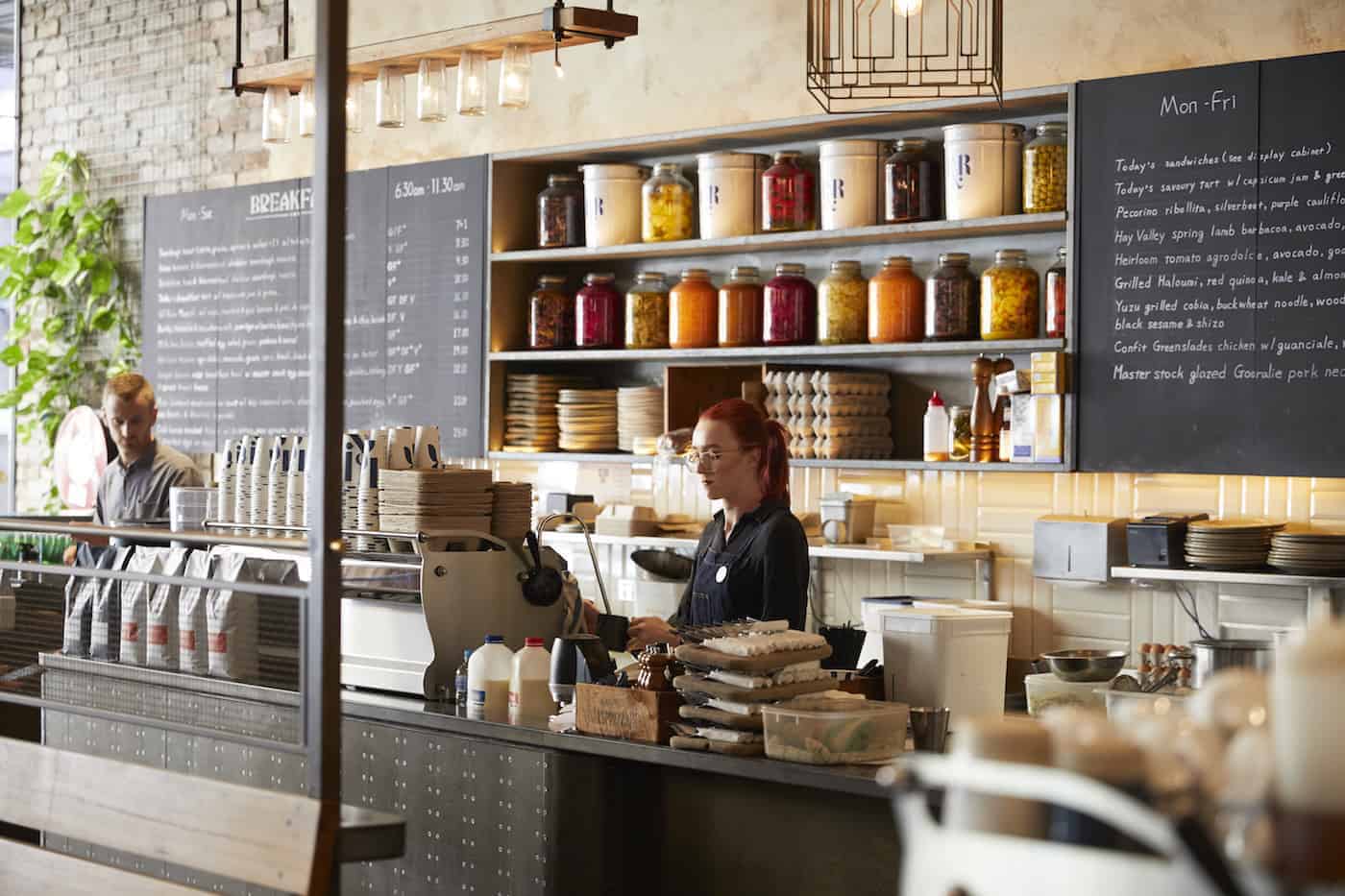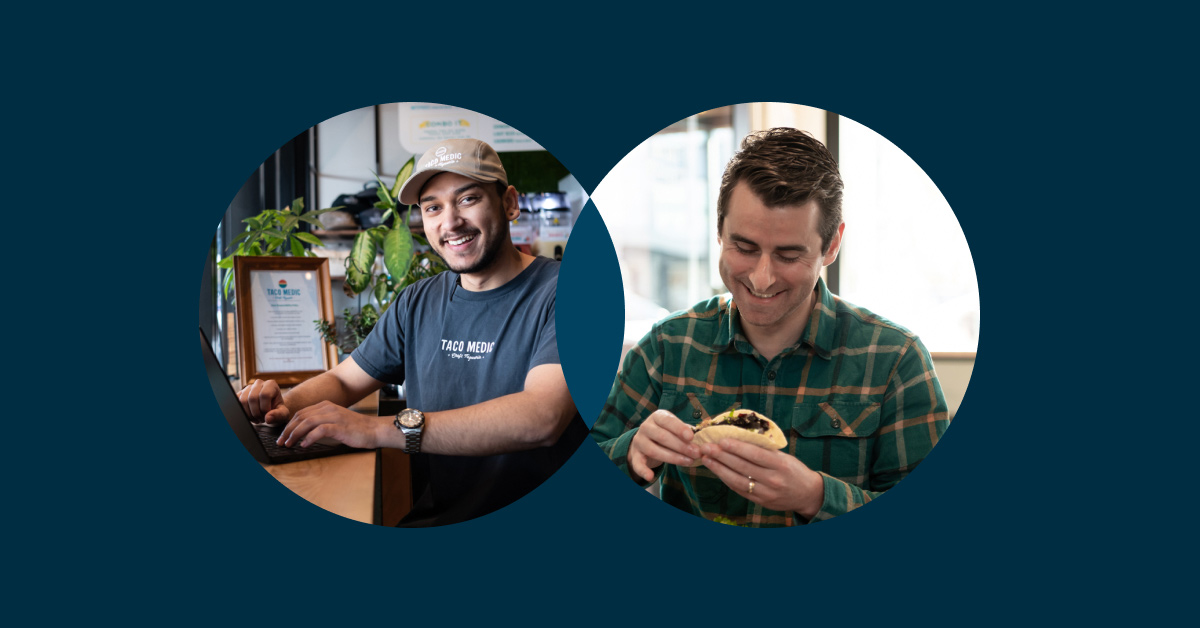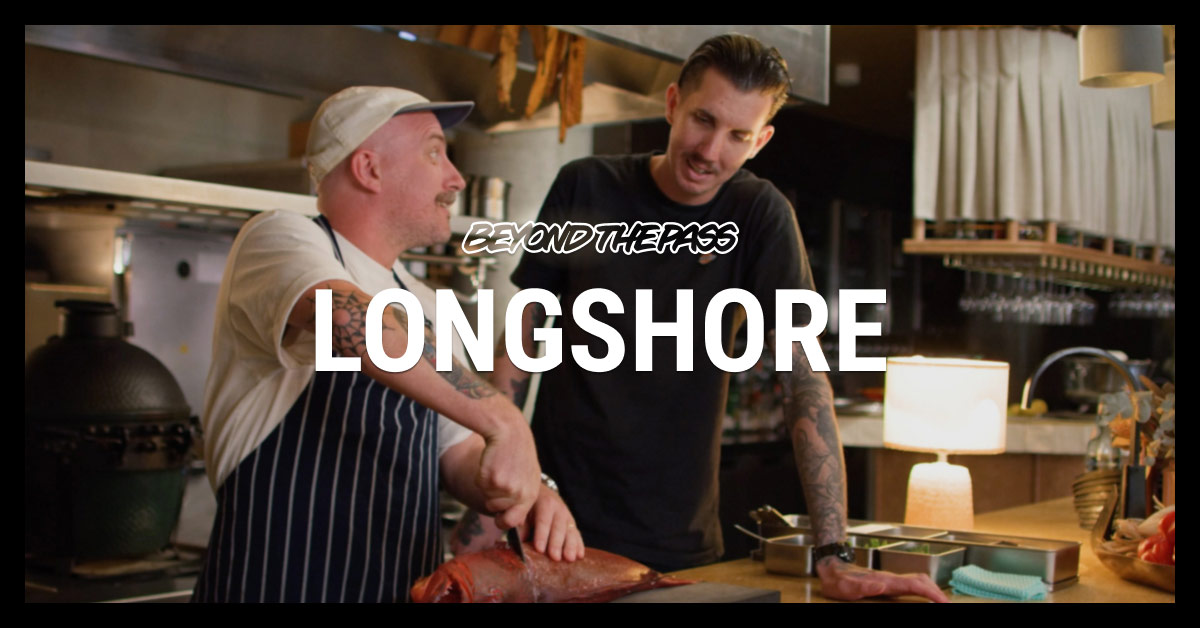Founded in 2006 by Saxon Wright – as a birthday gift to his two brothers-in-law nicknamed Pablo and Rusty – P&R has since transformed into one of the most well-known names in coffee this side of Australia. Now an established coffee wholesale business with several concept stores and a roastery in tow, P&R is well on its way to obtaining cult status among discerning coffee drinkers.
We spoke to Abdullah Ramay, Chief Operations Officer at P&R, who tells us how a local café that started roasting their own beans became a renowned coffee wholesaler leading the way in hospitality innovation and sustainability.
A coffee business driven by technology
In an industry where customers are more knowledgeable (and demanding) than ever about what constitutes high-quality ingredients and impeccable customer service, P&R is a prime example of how technology – when deeply embedded as a philosophy – can help businesses and their customers do much more with less, and become more profitable in the process.

What was the thought process that led P&R into selling coffee wholesale?
Since Saxon ran a roasting business before starting P&R, we’ve kinda always had roasting in our DNA.
The wholesale side of things actually started when a few café owners we knew began asking us for our coffee beans. Then about four years ago – when we were supplying around 20 cafés and were at a pivoting point in the business – we had to decide our next move: do we franchise, open more company-owned stores or shift our focus entirely and become a roastery?
We arrived at the same conclusion from two different angles.
What drives us as a brand on the whole is making a positive impact on people and the planet through coffee. To us, this means being able to do our bit to address issues around sustainability, support hardworking cafés, and deliver excellent coffee experiences to the masses. We knew we would have a better chance of achieving those goals if we focussed on becoming a roastery.
Also, from a business perspective, company-owned stores are not easy to manage in Australia. Payroll tax and many other costs add to the list of challenges businesses like us face, and also makes profitability hard to scale.
We considered franchising, but knew it wasn’t ideal as we would lose some control of our brand. When we got down to examining our strengths, we realised that at our core we were a digital-minded company with a focus and passion for coffee, and we were perfectly placed to disrupt the roastery space.

You describe P&R as a digital company operating in the coffee/hospitality space. Can you explain how the business has taken this philosophy to practice?
We’ve always been early adopters of technology and have a keen interest in how technology can make cafés and restaurants more profitable while providing a better experience for the end users – the coffee drinkers. So we operate with a mindset not unlike many tech companies.
Our meetings are driven from a digital ethos; we run ‘sprints’, and do things with ‘agility’ in mind.
Even our innovation methodology is a process we adopted from the tech space – instead of having hundreds of staff, we chose to be a small and nimble team that focussed on creating value.
We were one of the first to sign up to Hey You (now Beat The Q), use a cloud-based point of sale (Lightspeed), and take part in industry-changing programmes at the pilot stage, such as CommBank’s Albert payment terminal. It’s worked so well for us we use our concept stores to showcase the best technology we’ve got so we can share our experience with our clients – the cafés we supply.
We also defined our operations with the goals of simplifying how we run and maximising the value we generate through resources, human or otherwise.
An example of that was when we stopped offering credit terms a few years back. Previously, we dedicated a fair amount of resources to managing what we were owed, and decided we didn’t want to be in the credit management business.
Instead, we took both credit or debit card payments and waived any fees, and used the time and focus we saved here to hone in how we could better add value to our customers.
Technology and data-analytics are embedded in every process of our business – from logging every roast in the cloud through our point of sale to selling through our app, holding digital training sessions to optimising our subscriptions site for mobile. Internally, we practice everything from using online help desks and electronic proposals, to picking orders and fulfilling them on iPads and much more. ‘Digital’ and ‘technology’ are not buzzwords for us, they are at the core of everything we do.

How do you and the team come up with new ideas?
We’ve formalised the process we used to get new ideas and now have a monthly leadership team meeting along with a quarterly full-day session where we discuss our thoughts openly.
To stretch our thinking as far as possible, we ask ourselves questions like “what would happen if 75 per cent of world’s coffee supply vanishes?” or “what would we do if paper cups were banned?”.
Our three company departments; operations, wholesale and production, all have quarterly brainstorm meetings which include discussion points around how we can improve our customers’ experience, the industry, and also the company and their individual departments.
We also do a yearly exercise where we allocate budget to ideas that make it through a defined ‘innovation pipeline’. It’s a highly collaborative, evolving process and an exciting area of focus for us!

What does going cashless in a largely cash-dominated industry mean to P&R?
There are a number of challenges facing Australian hospitality businesses. One stems from the fact that the hospitality industry is still renowned for being cash-driven even as Australia is moving towards becoming an entirely cashless economy. For this reason, cafés and restaurants are on the Australian Tax Office’s hitlist.
While we firmly believe in ethical business practices and have always done everything by the book, we can at the same time, understand the temptation that drives some SMBs towards illegal practices, such as avoiding taxes by taking only cash. It’s a big issue, but many are almost forced to take part to stay competitive.
Consider this scenario: if you pay a barista $23 an hour on the books, that means the employee receives $22 or so after tax, but it could actually end up costing your business $25 because of superannuation, workers compensation and everything else.
Meanwhile, the café next door would pay $23 in cash, which costs them less while making the employee feel like they’re getting more. It’s a double-edged sword. It’s taken a bit but we’ve stuck to being an ethical and purpose-driven business and now attract staff that are driven by those same values.
We launched our first cashless café in Brisbane to show other owners that they can still be just as profitable, if not more so, if they use the right technology to help them focus on their strengths and provide amazing customer experiences while reducing operating.
In doing so, we hope to lead the way in helping cafés become more profitable, so our clients and the industry at large can operate legal and ethical businesses, as we’ve done for over 10 years.
How has the evolution of online food and beverage delivery affected P&R?
We have a heavy focus on what we call our ‘ecosystem’, that is, we want to create a loyal customer base that thoroughly enjoys the coffee we provide, whether they are at home, in the office or at a local café. Delivery is obviously a huge factor in achieving this on-demand experience.
It can be said that Australia was once at a disadvantage because of its geographical disposition. Low density (and therefore lower demand) combined with long distances between us and international suppliers made for expensive and slow freight, but that’s all changing now.
With Amazon setting up shop here and advancements such as automated driving not that far around the corner, we believe Australia’s freight industry is ripe for disruption, and it’s only going to get much cheaper and faster to obtain what we need and distribute what we have.
In anticipation of this, we pushed to service home and office coffee drinkers with delivery, and that led to us developing our subscription model.
We don’t charge for delivery across all of Australia, so our customers pay the same wherever they’re based. We found that offering delivery increased awareness of our brand and generated more loyalty, which also increased sales for cafés that carry our product.
How do you see technology helping café owners become more profitable?
Café owners are HR managers, IT technicians, payroll processors and everything else whilst running their businesses and managing employees. They have no time, work very hard and the return they get is not always that good.
On top of everything else, it’s also a highly competitive market. In this day and age, technology is the one thing that can help café owners make better business decisions and do much more with less.
So much time is wasted on the smallest of things – managing multiple spreadsheets, backing up data, making sure timesheets are logged.
We want our customers to work smarter, not just harder, and enjoy the fruits of their labour. Technology can make all of that and more possible. If using certain software allows you to get the data you need to prioritise work on important areas and have more control over your business overall, why wouldn’t you take it on?
Living and breathing sustainability
With the government’s recent announcement to halve Australia’s food waste by 2030, hospitality and foodservice businesses that exercise socially responsible and green practices will benefit from customers and like-minded folk who see sustainability as an essential part of the future. Sustainability is intrinsic to P&R’s operations, whether it’s the lights in their business premises or the growers they source their beans from.

How has sustainability been incorporated in the business?
Sustainability is one of the main drivers of our business and has been from the start. It’s something we’re very passionate about and factor into every decision we make, which is why we’re extremely proud to be one of a select group of certified B Corps in Australia.
It’s all too common for businesses to claim they are ethical and sustainable, but actually living and breathing this is an entirely different story. Certifications such as B Corps help to ensure that businesses are held accountable to their ethical and sustainable claims.
In practising sustainability and reducing our carbon footprint day-to-day, we use only LED lights at our roastery, and solar panels on the roof mean we are completely off the grid on a sunny day. We also use green gas (a type of gas created from biodegradable material that can be used as a replacement for traditional fossil fuel gas), and 100 per cent biodegradable cups and lids.
Sustainability as a principle is deeply embedded in our organisation as a key-value, so we strive to work with sustainable suppliers, and even give our staff a ‘sustainability bonus’ if they don’t drive their car to work.

Why are sustainable practices crucial to the coffee industry?
As hugely populated countries like China and India have started consuming more coffee, more pressure is being put on the world’s coffee supply. This is without even considering the impact of climate change or rising frost lines on coffee production – it’s why we do a lot of R&D and spend plenty of time trying to get more yield from our beans.
When we roast coffee beans we aim to extract 18–22 per cent of brewed coffee (that is, 18–22 per cent of the ground beans end up in your brew). As far as possible, we want to use as much of the bean as possible without bringing any undesirable flavours through.
We’re also working with and supporting partner projects that reduce wastage in the coffee supply chain such the HuskeeCup, a reusable cup made from coffee.
The rise in popularity of trends like the Double ‘Rizzy’ (Ristretto) coffee deeply concerns us, because it uses twice the amount of beans for the same beverage yield.
Some roasters and wholesalers may encourage it because it means they sell twice the coffee, but it’s not a long-term solution as the demand has been artificially doubled. That means cafés will end up paying too much for their coffee beans, which will eat into their profits.
Ethically, we’ve never supported this practice because in the long term it means there is less money in our client’s pockets, and at a global scale it artificially inflates the global coffee demand.
The point we’re trying to drive home is this: if one sources high-quality coffee and roasts it properly, there’s no need to cut a shot in half and use double the amount of coffee to create a delicious beverage.

How does P&R select its coffee beans?
We have a ‘Green Team’ that are relentless in their pursuit of sourcing the best and most ethical coffee beans. Before making a decision on a batch of beans, they ask themselves questions like:
- Do the beans come from an ethical and sustainable coffee farmer?
- Do the beans qualify as a speciality grade (scoring 80 points or above)?
- Are the beans the best value for its purpose? For example, if we are after one with more ‘mouthy’ feel or a more chocolatey flavour for one of our blends, we ask ourselves if it’s good value for this specific purpose.
Because of this approach almost all our coffee is 100 per cent traceable. We know who the farmer is, the conditions they work in and the coffee we get is delicious and offers great value.
We’ve optimised how we select our coffee over the past three years and have learned it’s better to cup everything blind so we don’t know what we’re tasting. From there, our team scores the coffee and then we look at other factors such as cost, origin and process to evaluate whether it’s good value. Like many other aspects of our business, this is a data-driven process for us.
How do you score coffee beans?
We use a modified custom-built version of the traditional cupping process, a practice that’s been around for over 30 years and looks at the aroma, acidity, sweetness, and overall body and mouthfeel of the coffee. Most importantly, the cupping process evaluates how all these elements balance out in the taste.
Generally, anything scoring 80 or higher is really good. The score is out of 100 but the most you’ll ever see is in the high 90s, and for that kind of coffee you would expect to pay above $1000 or even $2000 a kilo in green.
We’ve found that a marginal increase in quality, like cheese and wine, is disproportionate to the increase in price. When you hit the luxury spectrum, the quality can improve by 10 per cent but the cost can more than double.
We continuously strive to find the perfect balance which maximises value for our clients so that delicious and ethical speciality coffee is accessible to everyone and not just a few.
Spreading the word to effect change
When you’ve got ambitions to better the world and a great story to boot, why not shout about it? In P&R’s case, practising – not preaching – makes the message of change more convincing, internally or otherwise.

P&R has a great story to tell. How do you communicate your philosophies with your customers and the wider coffee-drinking community?
We’ve always invested in our brand and getting the word out. However, as a lean company, our budget is smaller compared to our larger competitors. At the same time, we’ve always felt we didn’t need to pay for marketing as long as we were doing cool things that people and the media will naturally talk about.
This is evident in the fact that we’ve achieved an estimated million dollars worth of media coverage from opening our cashless store in Brisbane.
Word-of-mouth works best for us – we focus on taking care of our clients, and in return they take care of us. It’s helped us grow faster than companies with 10–20 times the marketing budgets we have.
When we do spend, we prefer digital content and data-led marketing campaigns over more traditional methods.
We mainly use digital content, social media, newsletters, our packaging, info cards and our website to communicate who we are, what we’re doing and why. We also do some events and digital marketing to raise awareness and reach new audiences.
Our new wholesale customers get a digital proposal which includes our brand story as part of a full onboarding package with videos and more about who we are.
One ‘issue’ we face – a great one to have in our opinion – is that we always find ourselves needing to do more (than we can even communicate) with regards to our brand and values. But that’s because we believe in doing more than we have time to talk about instead of being a company that talks more than it does.

What would you say are the main factors that have contributed to P&R’s success?
Having a strongly aligned team that is driven by a deep sense of purpose is definitely an important one for us. We wanted to try and build something that has a positive impact on people and the planet, and made sure this was a common motivational factor for those who joined us.
Success for us, also includes recognising what strategic levers we had, and utilising them to our advantage.
This includes applying design thinking to our brand model, sustainability in our operations, leveraging our great leadership and the knowledge they have, setting big goals and deliberately positioning ourselves as a digital company.
A combination of all these, I’m happy to say, has enabled us to avoid inefficiency and bureaucracy as we grow, and has resulted in the high-value team and great culture we’re all happy to be a part of today.

How do you do maintain your culture and beliefs as you grow?
At our monthly meetings we repeat what we call our ‘creed’, that is, our vision to positively impact people and the planet. We also specify and reiterate our five core values which all of us and all new team members must possess. They are:
- Passion for coffee: it’s hard work and it’s not glamorous, but if you love coffee this will be the best job you’ll ever have.
- Working at 100 per cent: we put in everything we’ve got, everyday we’re in business.
- Teamwork: ideas are better developed and problems are better solved if we eradicate the silos.
- ‘Sweeping the floor’: which, to us, means no job is too small for anyone.
- Passion for customers: they’re who we’re here for.
We also have five aspirational values – which we recognise aren’t in all of us yet – but are continuously working towards instilling in our overall business:
- Self-learning and self-service: things can change quickly and we want our team members to take the lead when it comes to their own learning.
- Attention to detail: because doing the small things first makes it easier to achieve the bigger goals.
- Focus on innovation: a focus on technological innovation helps us achieve our vision.
- Being an agent or participant of change: advancements need adopters, and being agile helps us move forward with the times.
- Value creation: we always seek to create value for our customers and give them a reason to come back.

What does the future hold for P&R?
We’ve grown phenomenally annually for the past few years and we are looking to grow at an even faster rate in 2018.
There’s a lot to be excited about but I think mostly we’re looking forward to the new technology that’ll enable us to grow further and push more boundaries in our business. More specifically, we’ll be further developing our digital ecosystem and help our clients make delicious and ethical specialty coffee accessible to all of Australia.
We see a huge potential in what we do, and that absolutely motivates us to come to work every day.








